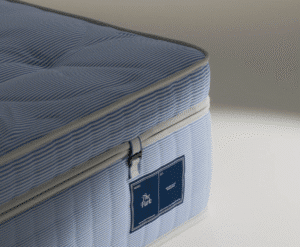In today’s fast-paced, always-on society, getting a good night’s sleep has become something of a luxury. The demands of modern life often lead to late nights, early mornings, and poor sleep quality, resulting in a myriad of health problems and decreased overall well-being. It’s no wonder that sleep disorders such as insomnia and sleep apnea are on the rise. Fortunately, there is a solution: improving sleep hygiene.
Sleep hygiene is a set of practices, habits, and environmental factors that promote better sleep quality and overall health. By following these guidelines, individuals can develop a healthy sleep routine and reduce the risk of sleep-related issues. This comprehensive guide will delve into the various components of sleep hygiene, providing practical tips and expert insights to help you achieve the restorative sleep you deserve.
The Science of Sleep
To understand the importance of sleep hygiene, it is crucial to grasp the science behind sleep itself. Sleep is a complex physiological process that allows the body and mind to rejuvenate and recover from daily stresses. It consists of two primary phases: rapid eye movement (REM) sleep and non-rapid eye movement (NREM) sleep. Throughout the night, the body cycles between these two phases several times, with each cycle lasting approximately 90 minutes.
During NREM sleep, the body undergoes various restorative processes, such as muscle and tissue repair, immune system strengthening, and the release of growth hormones. On the other hand, REM sleep is the stage where the brain processes and consolidates memories, emotions, and learning experiences. Both phases are essential for maintaining physical, cognitive, and emotional health.
The Importance of Sleep Hygiene
Good sleep hygiene is vital for several reasons:
Physical Health: Sleep is essential for the body’s repair and maintenance processes. Chronic sleep deprivation increases the risk of obesity, cardiovascular disease, and a weakened immune system.
Cognitive Function: Sleep is crucial for memory consolidation, problem-solving, and creativity. Insufficient sleep can impair cognitive abilities and reduce overall productivity.
Emotional Well-Being: Poor sleep can exacerbate anxiety, depression, and mood disorders. Ensuring proper sleep hygiene can help maintain emotional balance and reduce stress levels.
Overall Quality of Life: Sufficient, high-quality sleep can lead to increased energy levels, improved focus, and better relationships with others.
Key Components of Sleep Hygiene
Consistency: Establish a regular sleep schedule by going to bed and waking up at the same time every day, even on weekends. This helps regulate your body’s internal clock, making it easier to fall asleep and wake up refreshed.
Sleep Environment: Create a comfortable and relaxing sleep environment by maintaining a cool room temperature, reducing noise and light, and investing in a supportive mattress and pillow.
Pre-Sleep Rituals: Develop a calming pre-sleep routine that helps signal to your body that it’s time to unwind. This can include activities such as reading, stretching, or meditating.
Limit Exposure to Screens: The blue light emitted by electronic devices can interfere with the production of melatonin, a hormone that regulates sleep. Avoid screens at least one hour before bedtime to help maintain your natural sleep-wake cycle.
Mind Your Diet: What you eat and drink can impact your sleep quality. Limit caffeine and alcohol intake, especially in the evening, and avoid heavy meals close to bedtime.
Exercise Regularly: Regular physical activity can help improve sleep quality and reduce stress.

Manage Stress: Chronic stress can wreak havoc on your sleep quality. Incorporate stress-reduction techniques such as meditation, deep breathing exercises, or yoga into your daily routine to help alleviate anxiety and promote relaxation.
Nap Strategically: While napping can be beneficial, it’s essential to nap wisely. Keep naps short (20-30 minutes) and avoid napping too close to bedtime, as this can interfere with your ability to fall asleep at night.
Seek Professional Help: If you continue to struggle with sleep despite implementing healthy sleep habits, consult a healthcare professional or a sleep specialist. They can help identify underlying issues and recommend appropriate treatments.
Be Patient: Improving sleep hygiene is a process that requires time and consistency. Don’t be discouraged if you don’t see immediate results. Stick to your new sleep routine, and over time, your sleep quality should improve.
The Impact of Sleep Disorders on Sleep Hygiene
For some individuals, sleep disorders may be the primary cause of poor sleep hygiene. Conditions such as insomnia, sleep apnea, restless leg syndrome, and narcolepsy can significantly impact sleep quality and overall well-being. If you suspect that you may have a sleep disorder, it’s essential to seek professional help. Proper diagnosis and treatment can help improve sleep hygiene and enhance overall health.
The Role of Sleep Hygiene in Children and Adolescents
Sleep hygiene is just as important for children and adolescents as it is for adults. The National Sleep Foundation recommends the following age-appropriate sleep durations:
- Infants (4-11 months): 12-15 hours
- Toddlers (1-2 years): 11-14 hours
- Preschoolers (3-5 years): 10-13 hours
- School-aged children (6-13 years): 9-11 hours
- Teenagers (14-17 years): 8-10 hours
Parents and caregivers can promote healthy sleep habits in children by establishing consistent bedtime routines, creating a relaxing sleep environment, and limiting exposure to screens before bedtime. Good sleep hygiene in childhood can set the stage for a lifetime of healthy sleep habits.
Conclusion
Sleep hygiene is an essential component of overall health and well-being. By understanding the science of sleep and implementing healthy sleep habits, individuals can improve their sleep quality, cognitive function, and emotional well-being. It’s never too late to prioritize sleep hygiene and unlock the benefits of a good night’s rest. As the renowned sleep researcher William C. Dement once said, “Sleep is the golden chain that ties health and our bodies together.” So, commit to making sleep a priority and watch as your life transforms for the better.


















